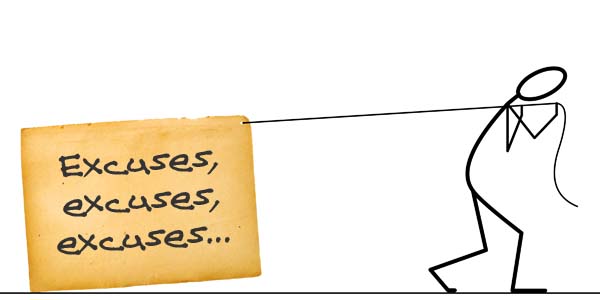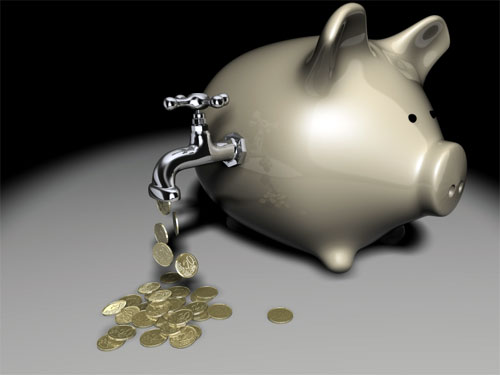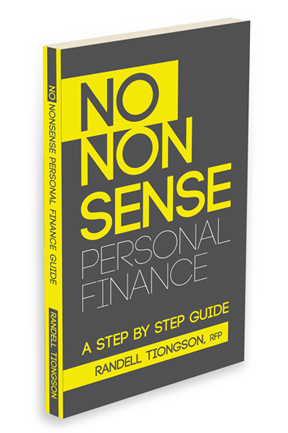3 Tips to Curb Impulse Spending
By Randell Tiongson on May 31st, 2016

It’s a challenge – saying ‘no’. This is so very true especially when it comes to shopping. You pass by the mall, and you see the big red ‘SALE’ sign. You instantly go in, and come out with a bag or two in hand, or even when it comes to online shopping. You check a website, add a number of things into your cart, and then click the check-out button. With the ease and accessibility of shopping, it has become almost effortless to spend, and you might find yourself falling into the trap of impulse spending.
The habit of impulse spending may be hard to break, but once you learn to say ‘no’, you’ll find yourself wishing you broke the habit sooner. Today, I will share 3 tips to curb impulse spending. These tips may be easy to start yet hard to maintain, so it’s important to keep building the habit. In a study done by the University College of London, it took the 96 participants between 20 to 84 days to form their habits of choice. The number of days varied depending on the activities participants wanted to turn into habits. Eating healthier took a shorter time as compared to exercising regularly. That aside, here are three activities you can turn into habits to curb impulse spending:
1) Track your expenses
This is one of the easiest ways to curb impulse spending. You can download a tracking app on your phone, so you can record your expenses quickly and conveniently. With this, you also need to know your budget. If you find yourself close to your spending limit, this should give you the push to stop buying unnecessary things. Even more, if you add up your expenses and find that you’re spending too much on a certain category, you might start feeling guilty and start avoiding buying unnecessary things.
2) Leave your credit cards at home
Credit cards make it easier to spend. With a single swipe of your card, you can buy what you want. Even better (or worse), you can buy something for X amount as long as it’s within your credit limit. It doesn’t matter if you don’t have the cash to pay. Your credit card isn’t connected to your ATM account. This can lead to a dangerous path if you cannot control your spending, so one of the easiest ways to curb impulse spending is to leave your credit cards at home and only bring enough cash to cover your transportation costs and food expenses. By leaving your cards at home and only bringing enough cash, you can’t afford to shop at the last-minute.
3) Stay focused on your goal
Have you ever wanted something so bad that you were willing to do everything to achieve that? If you have a money-related goal, such as buying a car or a house or travelling the world, staying focused on your goal will allow you to curb your impulse to spend. If you’re browsing through an ecommerce website and find a number of items you like, just remember that you have a goal to reach, and that if you end up spending, it will take you a step back from that goal.
So how do you stay focused on your goal? You can write it down and put it in a place where you’ll see it every day. You can keep reading online resources and join groups or forums to talk with like-minded individuals. This way, you’ll surround yourself with information that and people who can influence you to reach your goals.
Saying ‘no’ to impulse buying may be a challenge at first try; however, once you build the habit, you’ll find it easier to curb. Furthermore, this discipline will trickle down to other aspects of your life, from building the habit to eating healthier or exercising regularly.
Plan carefully and you will have plenty; if you act too quickly, you will never have enough. (Proverbs 21:5 TEV)
5 Excuses Financially Savvy People Never Use
By Randell Tiongson on April 11th, 2016
Financial planning and management – it sounds like a daunting task. It’s already one thing to earn money, and it’s another to actively manage it and ensure you’re planning your finances properly.
You know that saving is important, and yet you’re always counting the days until payday because nothing’s left in your account anymore. You know that investing is a great opportunity to grow your money, and yet you keep holding it off because your salary is insufficient. You know you want to retire on a beach and drink cocktails or beer every day, and yet you haven’t started saving up for retirement – a time when you won’t be earning an income anymore.
Financial planning and management – it’s a daunting task, but everyone needs it. You might have the friend who seems like he has his finances in order. You may know of a colleague who manages to travel quarterly and yet doesn’t look like he’s starving himself to save. These people are the type to emulate; they’re financially savvy and have their finances in order.

Hoping to become one of them someday? You can start with changing your mindset and avoid making excuses. Here are 5 excuses financially savvy people never use:
I don’t know where to start
With the boom of the internet, information is more accessible at present day than it has ever been. A simple online search will give you the exact information you need. A person can spend hours on the internet each day. Why not allot a little bit of it to become productive?
The solution: Simple searches such ‘how to save my income’ or ‘what is a good investment’ are a great first step. The internet is a place that seems to have an answer for everything. Are you planning to open a bank account to stash your savings? Check the websites of different banks before going to local branches. Are you planning to apply for a mortgage to buy your first home? Use comparison websites, such as MoneyMax.ph, to learn a little more about home loans before you settle for one.
I’m busy
We all have 24 hours a day, but some people seem to get more things done than others. It’s about prioritization. When you say ‘I’m busy’, this means you’re not prioritizing that particular task.
The solution: To start, write down one financial goal you want to achieve per month. This can be tracking your expenses or saving X% of salary. After, write down specific steps you can do to achieve that goal. Now that you’ve written the steps, it’s time to prioritize them. If you want to save 10% of your salary, you would have to prioritize this over buying that artisan coffee or trying the new speakeasy bar that just opened up.
It’s difficult
Doing what is right is usually difficult to do. A specific example is buying a new pair of shoes. It’s much easier to do that to open a bank account. When you buy shoes, you have multiple payment options – cash, debit, or credit. When you open a bank account, you have to fill up and submit forms, IDS, and what have you. There’s no argument as to which one’s easier to do; however, what is easy isn’t always what’s right.
The solution: Start small so that action doesn’t seem so burdensome. Do you want to save a percentage of your salary? Why not start with saving 5% first? 5% of a Php 18,000 salary is only Php 900. Do you want to start investing? Why not read 500-word blogs about it first? The more you get the hang of a particular action, the less difficult it becomes.
I don’t have money for that yet
This is definitely one of the most common reasons why people forego financial planning and management. There’s a misconception that it takes huge amounts of many to start wealth-building.
The solution: As mentioned earlier, start small and shift your priorities. You can open an investment account with Php 5,000 or Php 10,000. The amount doesn’t matter at the start; what matters is you take the first step. Couple that with a changed mindset – prioritize saving over spending. If you put saving first before spending, you’re going to be saying, “I don’t have money to spend”. That’s much better than saying, “I don’t have money to save”.
Y.O.L.O.
You only live once. So why save for the future and live a miserable present? However, you can find a balance. YOLO doesn’t mean you quit your job, travel the world, and figure it you. Why not travel and work at the same time? You can save your vacation leaves to travel or take part-time work in whichever country you’re in.
The solution: Find the balance between fun and practical. This can be hiking during the weekend to explore the outdoors instead of spending it in the mall. This can be having a potluck dinner with friends instead of dining in a restaurant with outrageous mark-ups. The key is to find a balance. Be practical and have fun at the same time. Save for your future self without sacrificing your present self.
Financial planning and management – it’s a daunting task, but everyone needs it. Taking the first step is always the hardest, so why no start by changing your mindset, slowly but surely. Say ‘goodbye’ to the excuses above, and challenge yourself to reach your money goals. Sooner or later, you couldn’t believe the excuses you used to say in the past because you’ve already gotten used to financial planning and management that it becomes easy and automatic.
———
It’s time to be an empowered investor! Join the biggest investment conference of the year – iCon2016 this May 28, 2016

Visit www.icon2016.info for details.
Understanding (and Increasing) Your Cash Flow
By Randell Tiongson on October 21st, 2015

For today’s blog, let’s go back to basics. A lot of beginners to personal finance can feel overwhelmed because of all the options, like which investment to get or which bank to choose. But before you start on any of that, you must have a healthy cash flow first.
“The inflow of cash should always be greater than its outflow.” It sounds simple, but many people don’t have this step down yet. If you’re living paycheck to paycheck, then your inflow is exactly equal to your outflow. If you’re living paycheck to paycheck and you have debts, then your cash flow is negative.
This is where having a healthy cash flow comes in. Learning how to manage your cash will be the single greatest factor in improving your financial future, because if you don’t have extra cash, how can you start saving and investing?
In personal finance, cash flow is all about income and spending. If you’re spending more than you earn, you’ll have a negative cash flow. How can you improve this? Earn more, spend less.
Again, sounds simple, but it’s not that easy to do. To help you out, here are a few ways you can improve your cash flow:
1. Make more money. The most straightforward way to have more money is, well, to make more money. So invest in your best asset — yourself! Read books, widen your knowledge, improve your skills to expand the range of income streams you can have. For me, it was reading books that improved me; I became a better writer and teacher through reading, and I also learned a lot of things directly or indirectly related to my profession. Having more marketable skills will increase your earning power and positively influence your cash flow.
2. Invest in learning. This is a part of investing in yourself. The more you know, the more ways you can find to make money. Whether that’s by improving yourself in your current company or learning ways you can start your own business or sidelines, learning is an investment that will never go to waste.
3. Be enterprising. I’ll admit that I don’t think entrepreneurship is for everyone. However, I still think that more Filipinos can go into entrepreneurship. But it’s important that you go into it armed with knowledge — among others, you should read about the business you want to get into, observe the market, make sure your business plan is solid, and have an exit plan. It would also help to start small, such as basic buy and sell or commission selling. There are many opportunities for the beginning businessman (or woman); these 9 businesses you can start for less than P50,000 is a good jumping-off point. The number of SMEs in the country is increasing, and it’s always heartening to hear success stories. If you prepare correctly, and with God’s grace, you could be one of them. A successful business or sideline will do wonders for your cash flow.
4. Spend less money. Making more money takes time and effort. It may take months for you to get that pay raise, or even longer for your business to start raking in profits. You know what takes less effort and has immediate effects? Spending less money! I’ve said it so many times that you might feel like I’m a broken record, but it’s still true — the way to wealth is spending less than what you earn and investing the difference. If you do this for the long term, you’re sure to meet your goals.
While it may take objectively less effort to spend less than to make more, it also feels a lot more painful. We Filipinos have a culture of spending. How many times have we promised ourselves that we’d be more diligent about spending, only to go out and make unnecessary purchases?
The thing we must remember is spending on things we want, as pleasurable as it might be, is only temporary. This doesn’t mean that you should never spend money on “unnecessary” things, but you should never let it affect your financial well-being. Track your spending, identify where you can cut back, and control your spending — don’t let it control you.
Ready to get a handle on your cash flow? Having read the above, you can start by preparing a budget so you can see where your money is going and what your net cash flow is every month. Cash is the lifeblood of personal finance, so make sure yours is healthy.
Tip: Learn how to manage your finances better by reading my book No Nonsense Personal Finance: A Step by Step Guide. To order, send us an email [email protected]







